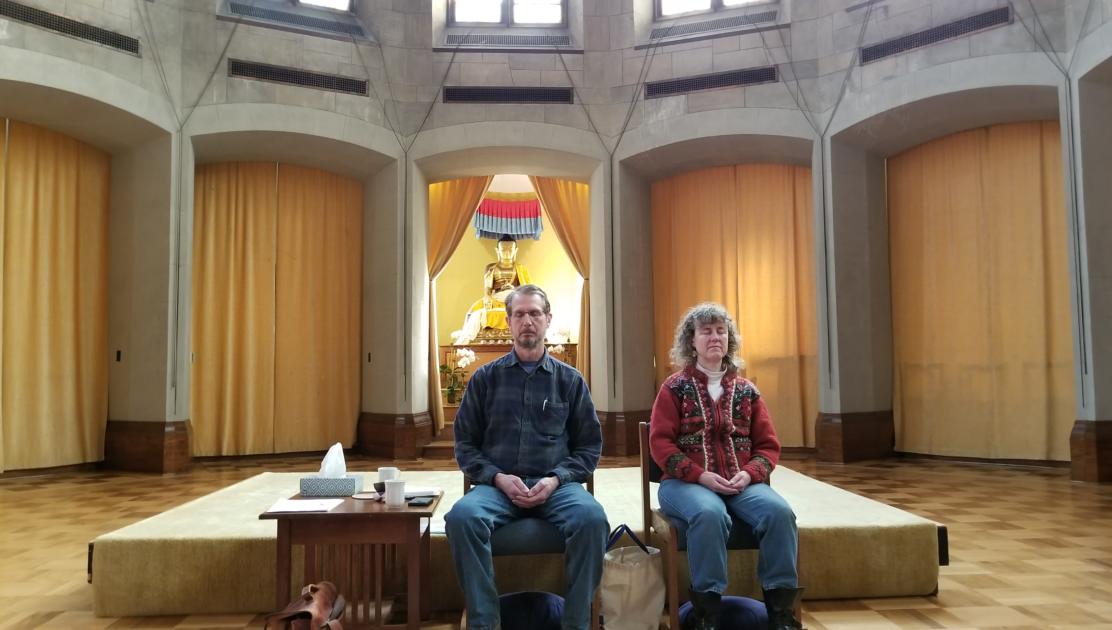Christopher Sammond Leads Staff Contemplative Retreat at the Garrison Institute
By Stacey MitchellIn December, the Garrison Institute staff participated in a two-day contemplative retreat at the Institute led by Christopher Sammond, a Quaker living in the Hudson Valley.
On the first morning, Sammond presented an overview of Quaker history in the morning before introducing the group to the practice of Quaker worship. In the afternoon, the staff convened in a circle to participate in worship. On the second day, we worked in small groups on the Quaker practice of discernment, where individuals seek support from their community to ask for guidance on personal issues, such as selecting a partner for marriage, making a large purchase, or how to handle a dispute.
Three important aspects of Quaker practice that Sammond emphasized are 1) listening (to each other and the divine), 2) corporate practice (it must be done with other people), and 3) openness (of heart, spirit, and to the divine). Quakers are Christians with their denomination dating back to reformation years and they don’t believe it necessary for Christians to go through a senior pastor or priest to have direct access to the living teaching of Jesus Christ or God. So while community is important for Quakers, individual experience is also important. Quaker practice is an orthopraxy as opposed to an orthodoxy—in other words, based on practice and not belief. A goal of this practice is transformation. It shows us where we are in and out of alignment with God. Sometimes this is nurturing, Sammond advised us, and sometimes this is harrowing.
Although it is an individual experience, Sammond emphasized that it is an oxymoron to be a Quaker of one. To be together in worship is essential to the Quaker experience. There is an energy that is created by joining together, and, again, it is something that must be experienced not described. The individual is part of a larger whole—the congregation, society, and God. Quakers are known as “Friends,” based on the saying in the Apostles of the Bible, “I used to call you servants, now I call you friends.” “Friends” listen together as one body.
Being in silence is often an important part of being together in a group. At the staff retreat, we did what many contemplative traditions do, sitting together in silence. We listened to the silence together while sitting on our chairs and cushions. Sammond suggested that, in the same way that the Inuit Native Americans in Alaska are known for having 40 different words for snow, Quakers believe there are at least 40 ways to experience silence.
At the beginning of the retreat, Sammond shared one of his favorite quotes with the staff, which was from Douglas Steere: “To listen another’s soul into a condition of disclosure and discovery may be almost the greatest service that any human being ever performs for another.”
The retreat created a contemplative container in which the Garrison Institute staff was able to practice the service of listening.
Stacey Mitchell works at the Garrison Institute. You can find her on Twitter here.
